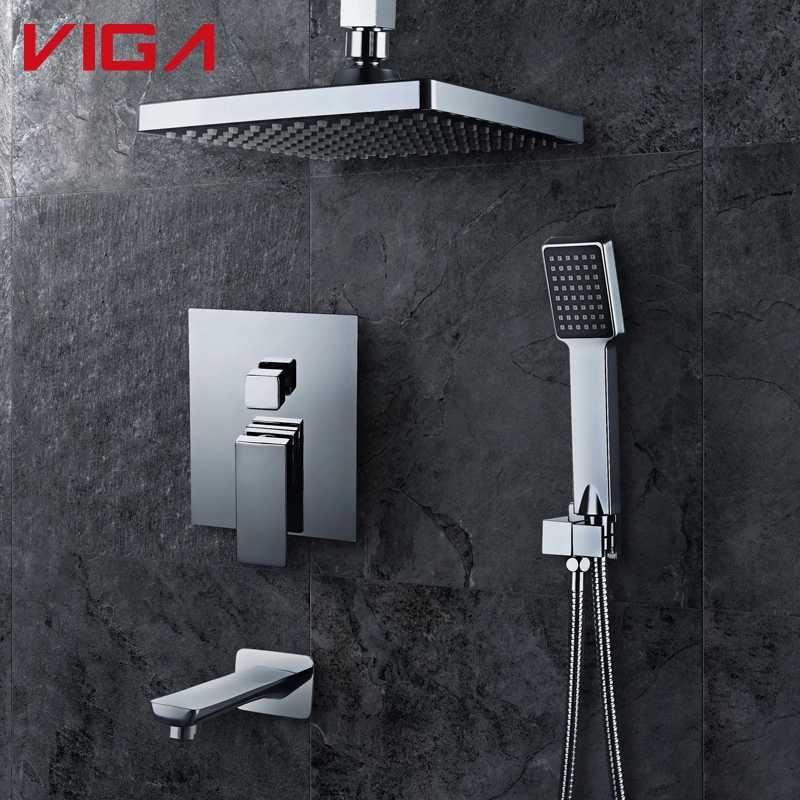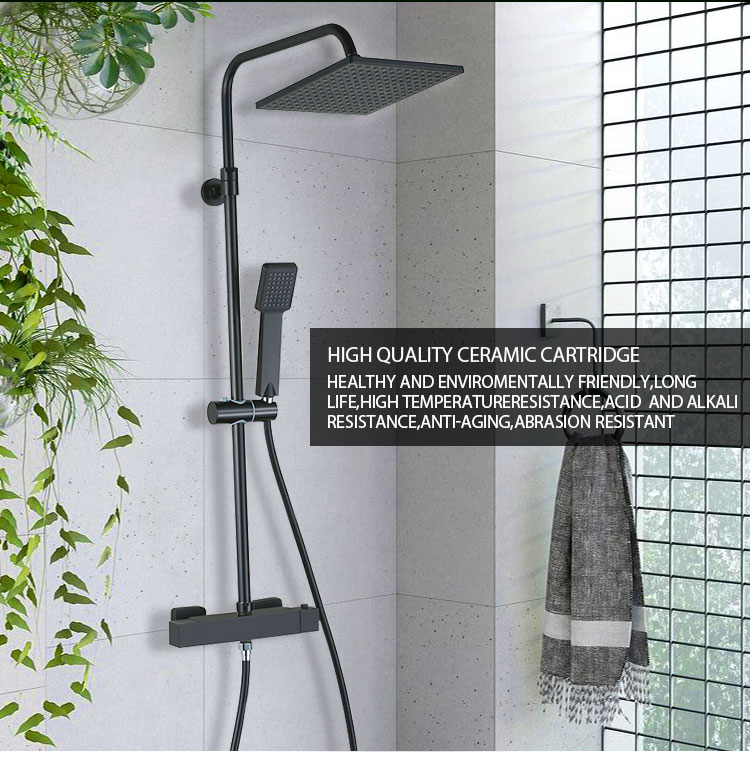Are you tired of dealing with that old, leaky shower faucet? It’s time to take matters into your own hands and give your bathroom the upgrade it deserves. In this comprehensive guide, we will walk you through the process of replacing a shower faucet step by step, ensuring a smooth and successful installation. With the right tools and materials, you’ll be able to transform your shower into a functional and stylish oasis. So let’s dive in and give your bathroom a much-needed upgrade!
Step 1: Gather Your Tools and Materials
To start the process of replacing your shower faucet, it’s important to gather all the necessary tools and materials beforehand. Here’s a list of items you’ll need:
New shower faucet
Plumber’s tape
Channel lock
Goggles
Flashlight
Screwdriver or Allen wrench (depending on the type of faucet)

Having everything prepared will make the installation process much smoother and more efficient.
Step 2: Turn Off the Water Supply
Safety is paramount when working with plumbing. Before you begin disassembling anything, make sure to turn off the water supply to your shower. The water shut-off valve is typically located near the shower or in the basement. To turn off the water flow, simply rotate the valve clockwise.
Step 3: Remove the Old Faucet
Now that the water supply is shut off, it’s time to remove the old shower faucet. Begin by unscrewing the handle or handles using a screwdriver or Allen wrench. Once the handles are removed, use a wrench to unscrew the faucet assembly from the wall. Take your time and be gentle to avoid any damage to the plumbing.
Step 4: Prepare for the New Faucet
With the old faucet removed, take a moment to inspect the area and clean any debris or build-up. This will ensure a clean surface for installing the new faucet. Apply plumber’s tape to the threads of the water pipe to create a watertight seal, preventing any leaks once the new faucet is installed.
Step 5: Install the New Faucet
Carefully attach the new faucet assembly to the water pipe, making sure it is aligned correctly. Use a wrench to tighten it securely, but be cautious not to overtighten and cause damage. Finally, follow the manufacturer’s instructions to attach the new handles.
Step 6: Test and Finish Up
With the new faucet securely installed, it’s time to turn the water supply back on. Slowly open the water shut-off valve and check for any leaks. If everything looks good, test the faucet to ensure it is working properly. עַכשָׁיו, step back and admire your new, functioning shower faucet!
Choosing the right shower faucet can significantly enhance your bathroom’s functionality and aesthetics. Whether you opt for an exposed shower faucet for a classic look or a concealed shower faucet for a minimalist touch, it’s important to consider your personal preferences and the specific needs of your bathroom. Both options offer their unique advantages, so take the time to weigh the pros and cons before making your decision. With this comprehensive guide, you now have the knowledge and confidence to replace your shower faucet and give your bathroom the upgrade it deserves.
What Is the Difference Between Exposed Shower Faucet and Concealed Shower Faucet?
When it comes to choosing a shower faucet, there are two popular options to consider – exposed shower faucet and concealed shower faucet. Both options offer unique advantages and considerations. In this article, we will explore the differences between these two types of shower faucets, helping you make an informed decision for your bathroom.
Exposed Shower Faucet:
An exposed shower faucet is a classic and traditional choice that adds a touch of elegance to any bathroom. כמו שהשם מרמז, the plumbing and hardware of the faucet are visible and exposed, typically mounted on the shower wall. This design not only enhances the aesthetics of the bathroom but also makes maintenance and repairs easier.
יתרונות:
Easy Installation: Exposed shower faucets are relatively easy to install, making them a popular choice for DIY enthusiasts.
Versatile Design: With a wide range of styles and finishes available, exposed shower faucets allow you to customize the look of your bathroom to match your personal taste.
Accessibility: The exposed design makes it convenient to access the faucet controls and adjust the water temperature and flow easily.
Considerations:
Limited Space: Exposed shower faucets require additional space on the wall, which might be a concern if you have a small bathroom.
Cleaning: As the plumbing is exposed, it may require more frequent cleaning to maintain its pristine appearance.
Concealed Shower Faucet:
Concealed shower faucets, also known as built-in or recessed shower faucets, offer a more minimalistic and streamlined look for your bathroom. The plumbing and hardware are concealed behind the shower wall, providing a clean and sleek appearance.

יתרונות:
Space-saving: Concealed shower faucets are an ideal choice for smaller bathrooms as they do not occupy any additional space on the wall.
Contemporary Design: The hidden nature of concealed shower faucets gives a modern and minimalist touch to your bathroom decor.
Easy Cleaning: With no exposed pipes or hardware, concealed shower faucets are easy to clean and maintain.
Considerations:
Professional Installation: The installation of concealed shower faucets requires professional help, as it involves cutting into the wall to accommodate the plumbing.
Accessibility: As the controls are hidden, adjusting the water temperature and flow may require some practice until you get used to the settings.
Conclusion:
Choosing between an exposed shower faucet and a concealed shower faucet depends on your personal preferences and the specific needs of your bathroom. Exposed shower faucets offer classic charm and easy maintenance, while concealed shower faucets provide a contemporary and space-saving solution. Consider the design aesthetic, ease of installation, and accessibility when making your decision. Ultimately, both options can provide a stylish and functional addition to your bathroom.
 ספק מפעל iVIGA Tap
ספק מפעל iVIGA Tap

